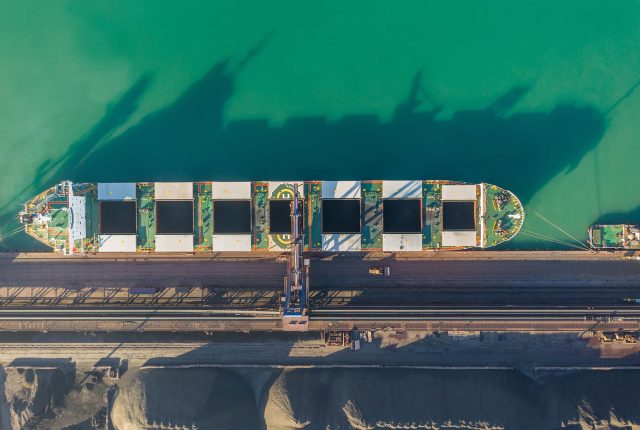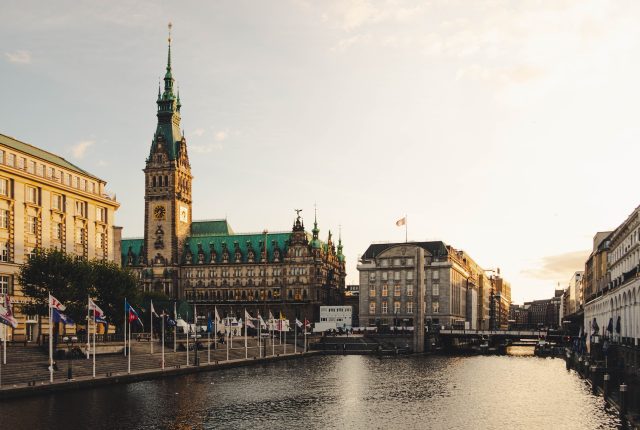
URSABLOG: End Of An Era
It’s been a busy week, with lots of things happening, and lots of news, and lots of things to reflect on, but the thing that most sticks in my mind as I settle down to write this – and I have to be honest – is the announcement that Jurgen Klopp will stand down as manager of Liverpool Football Club at the end of this season. It’s important to me. I will always know where I was and what I was doing when I learnt the news. The next hour was lost as I tried to find out the real facts, and then think about the ramifications of it all.
The thought process was instructive. It’s like one of those acronyms for dealing with grief, SARAH:
SHOCK
ANGER
RATIONALISATION
ACCEPTANCE
HEAL
I went through them fairly quickly. What? Really? He can’t just leave us! Well it had to happen some day and the reasons for him announcing it now are, well, reasonable. And I have full respect for what he’s done. Now what?
This happened in the space of minutes, hours not days, weeks or years. Perhaps it’s an indication that whilst it’s important to me, it’s not – to misquote Bill Shankly, or at least take him out of context – a matter of life or death. Life will go on, the club will go on, and the club will remain my club. But when we have a break-up, a death, a real catastrophe or trauma, then it can feel like a matter of life and death, and moving on is less hard to do.
These events happen in business, and due to the volatile and brutally cyclical nature of shipping, with more frequency than we are prepared for. But even so, truly, shocking, life-changing events remain rare, maybe because shipping is mobile, adaptable and resilient and lives in an environment where risk is part of the air we breathe.
Recent events bear this out. Russia’s invasion of Ukraine, as tragic and worrying as it is has led to some surprising twists and turns. Firstly ships were stranded in Ukrainian ports. This lasted until they were released as part of the UN brokered deal where inspections in Turkey overcame Russian reticence to allow ships in and out of Ukrainian waters. This deal collapsed when Russia unilaterally walked away, but Ukraine eventually created its own sea corridor which is safe and stable, for now at least. Ukrainian Black Sea grain exports, are now reaching levels not seen since before the Russian invasion. In December, they exported approximately 4.8 million metric tons of foodstuffs, mostly grain. How long this lasts is obviously an open question, dependent as it is on the belligerence – or lack of it – of Russia. But it cannot entirely be a coincidence that because nearly a third of these exports are destined for China, that they are being suffered to continue.
Those exports however are now under threat, not because of Russia but because of the crisis to shipping in the Red Sea. Even as early as the beginning of last week expectations were still that most grain cargoes would use the Suez Canal despite some anticipated diversions. The ongoing attacks by the Iran-backed Houthi militia, despite U.S.-led airstrikes in Yemen, have prompted more dry bulk carriers to avoid the Red Sea route altogether. As of now, approximately 3 million metric tons of the typical 7 million tons monthly grain shipments through the Suez Canal have been diverted. The estimated diversion rate for grain shipments through the Red Sea increased from 20% to 45% during the third week of 2024 and wheat shipments through the Suez Canal dropped nearly 40% in early January, totalling only 0.5 million metric tons.
When I first learnt of the Hamas attack in Israel, my first reaction was of shock, not just because of its brutality and scale, but because the next thought made a direct – almost instinctive – link: Hamas-Iran-Syria-Russia. It was obvious that the act itself would bring the hell of Israeli retribution on the heads of those in Gaza, but it was also obvious – to me at least – that the consequences were therefore going to be catastrophic, not just locally, but regionally and globally. This is coming to pass now. And although I am not one to indulge in conspiracy theories, Hamas’s Iranian backers – despite giving assurances to the contrary – were surely aware of the effects that were likely to ripple out from this conflict.
There is no healing in sight at present. Iranian-backed Houthi rebels – a phrase that seems to have come into being without me at least having a clear idea who they are rebelling against, except that there has been a civil war raging down there where they have attacked Saudi Arabian interests too – are targeting shipping with the least connection to Israel, the US, the UK and other ‘enemies’ which led to an attack on the British managed tanker Marlin Luanda. That was their excuse anyway. The fact that the ship was on charter to Trafigura, based in Singapore, flying the Marshall Islands flag, but most significantly carrying a cargo of non-sanctioned Russian naphtha shows that shipping is, well, complicated. Some breathless commentators suggest that this means the Houthi rebels – who had let it be known that they would not target Chinese or Russian assets – are becoming more ruthless in their tactics. I am tempted to conclude that they made a mistake, because how would they know where the cargo came from, and that the cargo is worth more than the ship itself? Most ‘sophisticated’ media outlets have no idea either.
Thankfully there were no human casualties, and the fire caused by the attack has now been extinguished – another indication of how safe shipping is – but I have a problem moving on from anger on this. I cannot rationalise, let alone accept the current situation, simply because I think it has a long way to go. What happens if and when they manage to cause serious damage to a military vessel in the region – particularly a US one – causing human casualties. The retribution will be swift and unforgiving. But if I can think this, then they know it too. They – and their Iranian backers – are fully aware of the potential consequences, and are pushing the restraint of the US and their allies to the limits.
I have no wish to make a public moral stand on the rights and wrongs of the tragedy in Gaza one way or the other, just as much as I haven’t on the war in Ukraine. There are other people better equipped, intellectually and emotionally, than I am. My anger is directed at the harm caused to innocent lives in either conflict, but I expect that the root of my rationalisation is a certain cowardice to taking sides. But I can’t accept it, because I feel that the story isn’t over yet. Not by a long way.
On the flip side, his is all good for limiting fleet supply, and stretching tonne-miles, and probably explains in part the robust resilience of the freight markets in what should otherwise be a terrible time. This does not mean that owners – or brokers for that matter – are willing accomplices (practically or morally) to the rain of misery and grief falling on innocents in different parts of the world.
So with all those deep and serious thoughts, why should Jurgen Klopp’s announcement remain uppermost in my obviously superficial mind? It doesn’t affect my life in any material way, except for the occasional joy and despair I feel during and after games, which passes fairly quickly. There is nothing I can do that will ever affect the fortunes of Liverpool Football Club – or any other football club for that matter – even if I wanted to. I think it is because it’s an easier thing to digest, and to identify with, than the geopolitical nightmare that seems to be unfolding, and cannot see the end of, even if my industry is benefitting from it.
It is also I suspect part of an innate desire, and a very human one, to identify with a human being that I admire and respect, and who has brought hope and joy to a community that I identify with. I do not, cannot, identify in the same way with any of the actors on the world stage at the moment, partly because I know that the control of events, let alone the creation of peace, hope and joy in a world is far more complicated than that of ensuring that a team of eleven players (most of the time) scores more goals than the team that they are playing against. Losing Klopp as manager is easy to move on from. Navigating the stormy world we live in after so many years of relative calm – geopolitically at least – requires something else, and I don’t know what it is.
Which in turn makes my coming week easier to deal with, with relatively easy problems as such as running a business, ongoing negotiations, inspections, talking with people that want to talk with us (even if it is sometimes reluctantly) with a market that is buoyant beyond many people’s expectations – despite or because of the current geopolitical situation – and anyway Liverpool have just beaten Norwich City 5-2 in the fourth round of the FA Cup. Walk on.
Simon Ward


